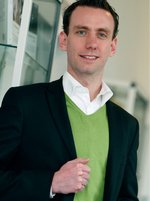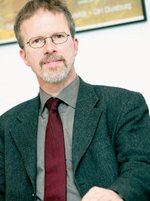
Transformation of Contemporary Societies
In order to fully address the subject of the transformation of contemporary societies, the Main Research Area pursues four interconnected goals: Der (1) High-quality research projects, conducted both by research groups and individuals who have been successful in securing funding and support in competitive processes, contribute to a better understanding of the dissolution of borders and order formation. (2) Increased internationalization ensures that the Main Research Area meets the demands of the intersocietal focus of the research programme and creates research networks and visibility within the scientific community. (3) In close coordination with other programmes to support young researchers, the Main Research Area promotes skill building and further training among doctoral and postdoctoral students, which includes introducing them to the subject matter and the strategic goals of the research area. (4) Finally, the Main Research Area acts as a forum for interdisciplinary exchange within the social sciences at the UDE and between these and neighbouring disciplines such as education, the humanities and economics. In pursuit of these aims, the Main Research Area of Transformation of Contemporary Societies has, in the three years since its foundation, supported over 80 projects involving more than 60 researchers from the UDE together with their colleagues and national as well as international cooperating partners.
Käte Hamburger Collegium (KHK)
In securing the Käte Hamburger Collegium “Political Cultures of World Society. Opportunities for Global Cooperation in the 21st Century”, the Institute for Development and Peace (INEF) and its partners, the Institute for Advanced Study in the Humanities (KWI) Essen, and the German Institute for Development Policy (DIE), Bonn, have achieved outstanding success to the benefit of research in the Main Research Area and at the UDE. In November 2010, an international committee of experts recommended the collegium to the Federal Ministry of Education and Research (BMBF) for funding, and it began its work on 1 February 2012 in Duisburg. In the coming six years, the KHK will look for ways of shaping global cooperation processes in a pluricultural world society so that effective solutions may be found in international negotiations. Foremost among these will be topics such as regulation of the financial markets, climate change, and limitation of sovereignty through intervention.
Establishment of the collegium is tied up with some challenging demands. The BMBF’s funding guidelines stress that KHKs should enhance the international visibility of humanities research in Germany and contribute to the development of structures and networks among researchers. For its part, the BMBF offers the collegium sufficient funding to enable it on an annual basis to invite ten visiting academics to the UDE for a year and to provide them with the research infrastructure necessary for scientific exchange with each other and with academics from the UDE.
The collegium is extensively networked with existing research projects at the UDE. Its focus is closely linked with the Main Research Area’s concept of “building order in a borderless world”. Cooperation is also planned with the DFG “Risk and East Asia” Research Training Group and with the “Governance in China” competence network. Accordingly, research at the collegium will influence other research institutions at the UDE and in turn receive fresh impetus from them.
Risk & East Asia
Since 2009, members of the “Risk & East Asia” Research Training Group have been studying social change in Japan and China from a risk analysis perspective. At present, the collegium is made up of 18 PhD students in three cohorts and four postdoctoral students, who are supported in their doctoral and post-doctoral habilitation work. This includes high level research training for which the services of internationally respected experts have been engaged. There is close cooperation between the research training group and the White Rose East Asia Centre of the Universities of Leeds and Sheffield. All qualification projects additionally include comprehensive field research on location in Japan or China.
The successes attained by scholarship holders and associated research group members are an indication of the high quality of research in the collegium. These are reflected in books and articles published by respected academic publishers and articles in relevant international academic journals. In 2012, an application will be made to the DFG for funding to be extended for a further three years.
In November 2011, two thirds of the way through their term, four BMBF funded collaborative projects on flexibility and stability of paid labour, to which researchers from the UDE have contributed, were able to present their preliminary results. Two of the projects, “Professionality, Organisation and Staff Development between Restructuring and Competence Assurance (BOPS)” and “Integrated Control Instruments for Raising the Innovation Capacity of Enterprises in the Publishing and Media Economy (FLEXMEDIA)”, are coordinated by Dr. habil. Thomas Haipeter and Professor Karen Shire PhD and their team at the UDE.
At the heart of the FLEXMEDIA project is the development and testing of a guide to strategy development and management of discontinuities for the media and publishing sector. Its aim is to assist small and medium-sized businesses throughout the management process. One finding of the research is that to a large degree businesses have not yet adjusted to digital media and therefore no radical new employment strategies are generally discernible.
Three innovative approaches to organizational and staff development are at the core of BOPS: the first concerns networking enterprises in the metal and electrical industry to form learning alliances to ensure the availability of professionally qualified staff. The second approach proposes differentiated career paths in trade as a way of securing new generations of leaders despite lean hierarchies. A third approach consists in using personnel transfer departments to improve in-company processes for matching employees to positions. The results show widely differing personnel and organizational development paths according to industry and company.
“Governance in China”
In the “Governance in China” competence network, a further research project is building on the UDE’s many years of experience in Asian studies. Central here is the key question of how authoritarian systems survive in an age of international markets and global communication. This question is also the subject of social science research on China. The competence network, an association of political scientists engaged in research on China at five different German universities, is investigating questions concerning the adaptation and innovation capacity of the Chinese political system. Three interrelated sub-projects concentrate on different aspects of governance in China’s transformation process.
The Duisburg project (in cooperation with the University of Tübingen) is concerned with actors and approaches at the local level. Local cadres are chiefly responsible for determining the political process and thus influence the implementation of central policy. In continuation of a DFG project, the basic premise is that local cadres form a strategic group in each district. Models and experiments can be found at all levels and may be initiated top down or bottom up. They play an important part in policy experiments, innovation and variation and thus constitute a central mechanism of Chinese politics, both for testing new policies (innovation) and for promoting advantages of location and strengthening local features (variation).
The competence network is closely linked with the “Arbeitskreis Sozialwissenschaftliche Chinaforschung” (Social Science China Research Working Group, ASC) and organizes an annual conference in cooperation with it. Particular emphasis is also placed on the training of young scholars and on collaboration with international scientists, particularly from China. Each year during the life of the project (2010–2014), a number of Chinese academics are invited to the individual locations of the competence network. For the interested public, the competence network also publishes German language background papers on politics and society in China.
The DFG is funding a three-year research project, “Why Do States Collapse? A Multimethod Investigation of the Causes of State Collapse”, led by Dr. Daniel Lambach. This research project will investigate which combination of factors leads to the collapse of state institutions. The main hypothesis is that in particular the conduct of certain authoritarian regimes, which erodes the state and weakens it from within, is most likely to lead to a dramatic collapse of public institutions. Preliminary work has identified 20 examples of state collapse since 1960, which will be compared with a control group of equal size. Under the general heading of “Cross-Border Labour Markets”, academics from the UDE are currently building a network of coordinated research projects to be submitted to the DFG as a proposal package early in 2012. This research group will consider questions concerning various aspects of the transnationalization of labour.
Under this category fall questions including the effects of selective remigration on the integration of migrants in the labour market; the bases of cooperation in transnational labour matters; the effects on national wage systems of European freedom to provide services; the development of institutional foundations and frameworks for transnational labour markets, which will be discussed on an international comparative basis and focus on the labour markets for groups such as care service providers and software programmers; and the development of models for the analysis of spatial mobility decisions. This new research group will make a key contribution to research on new forms of building order in a borderless world.



